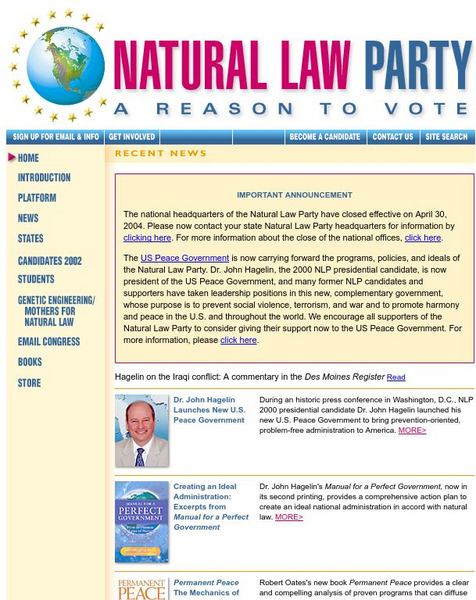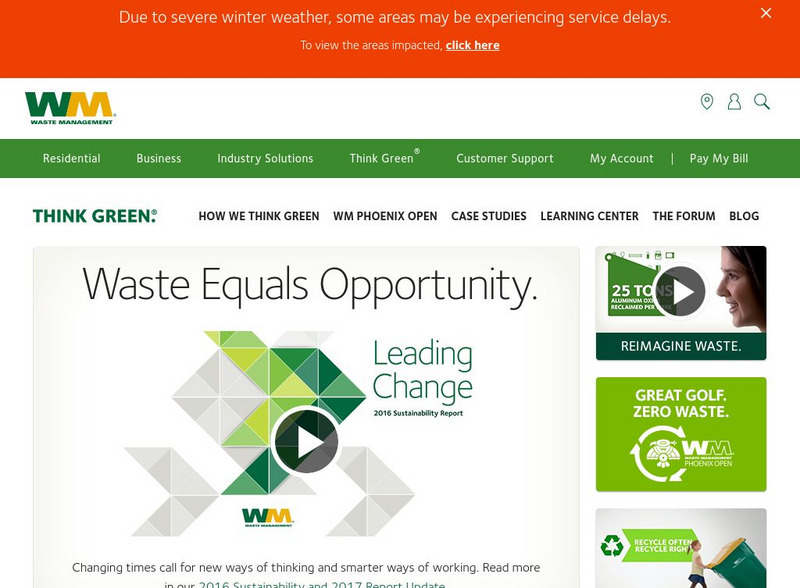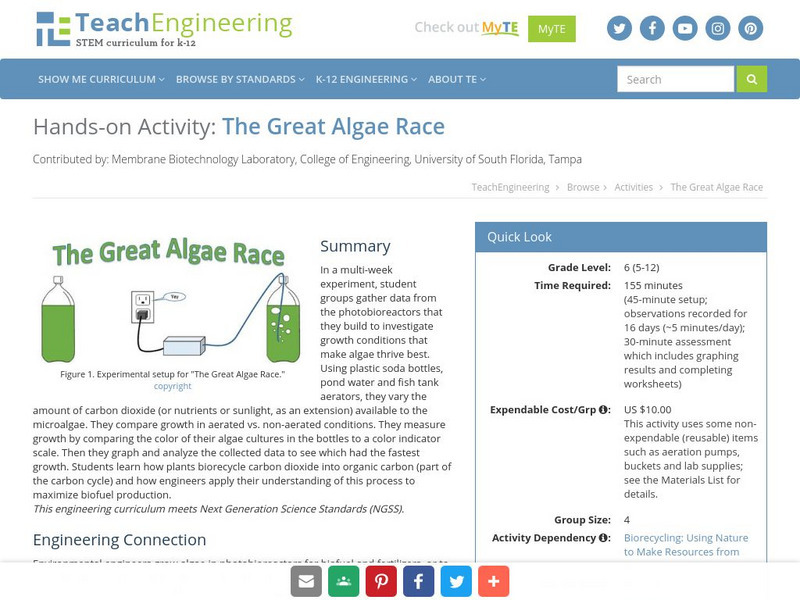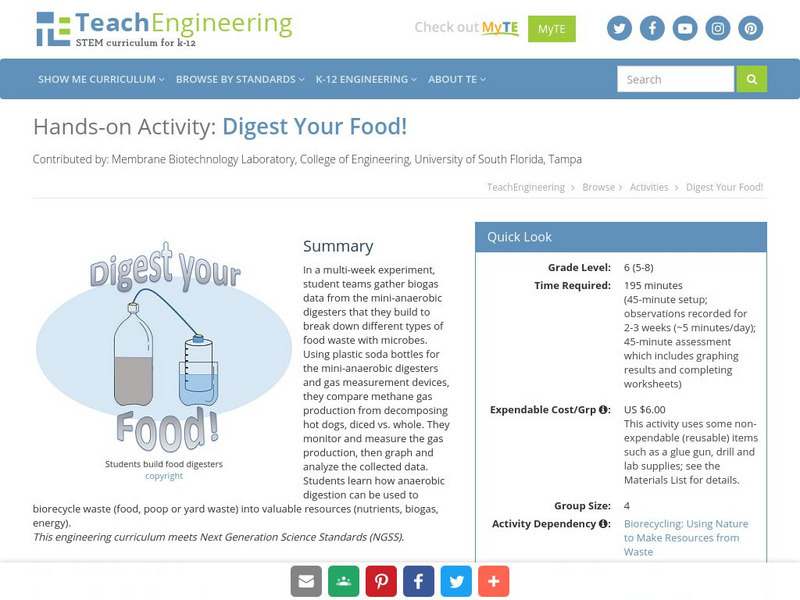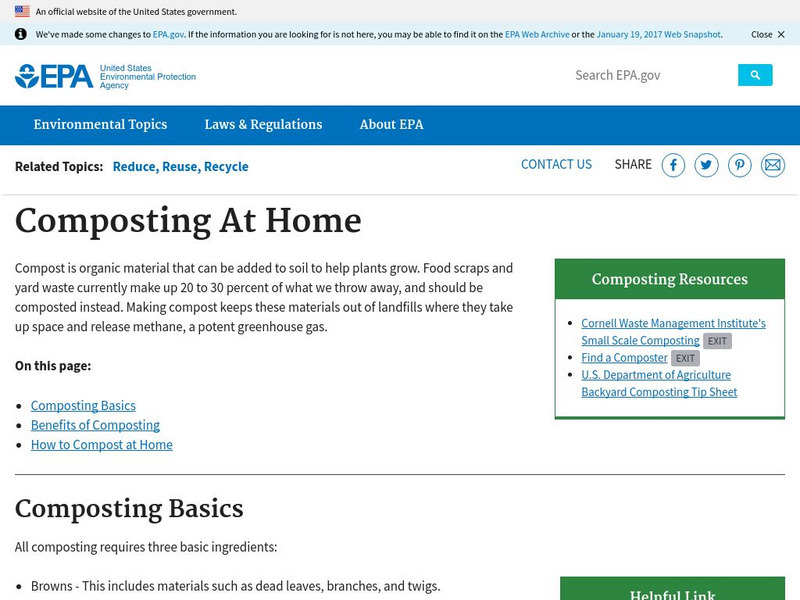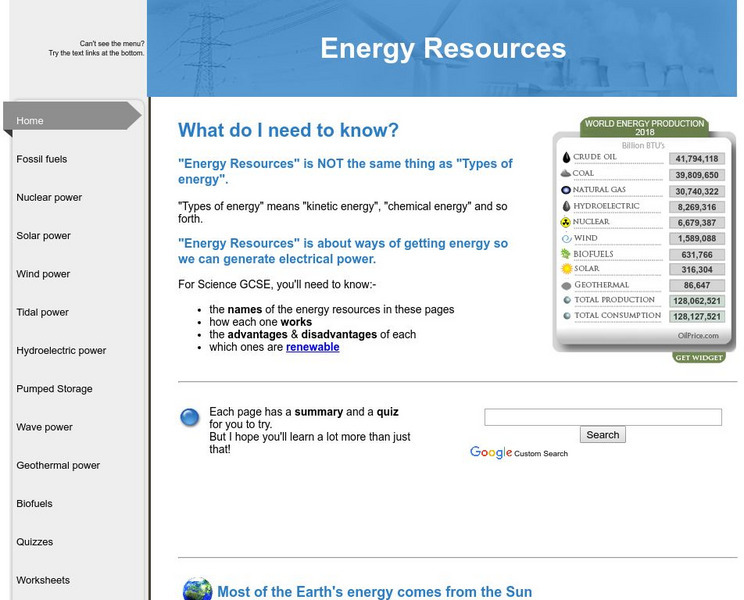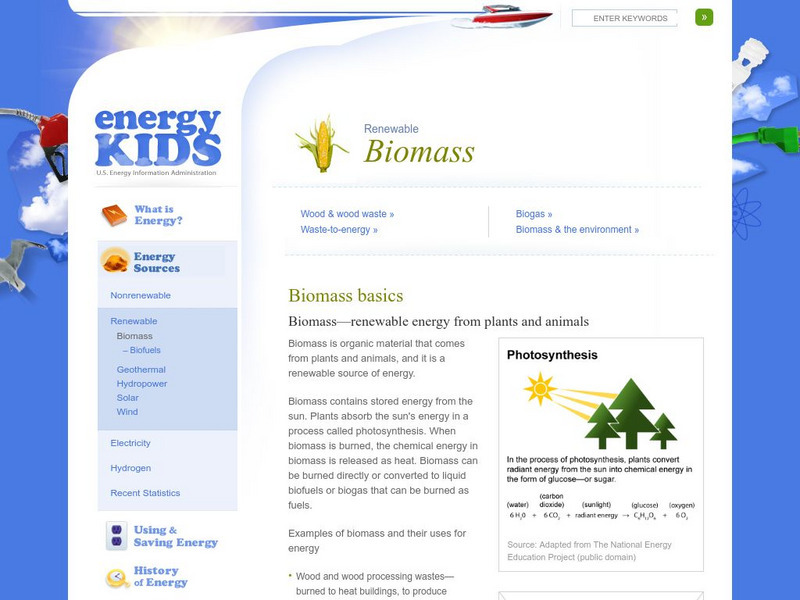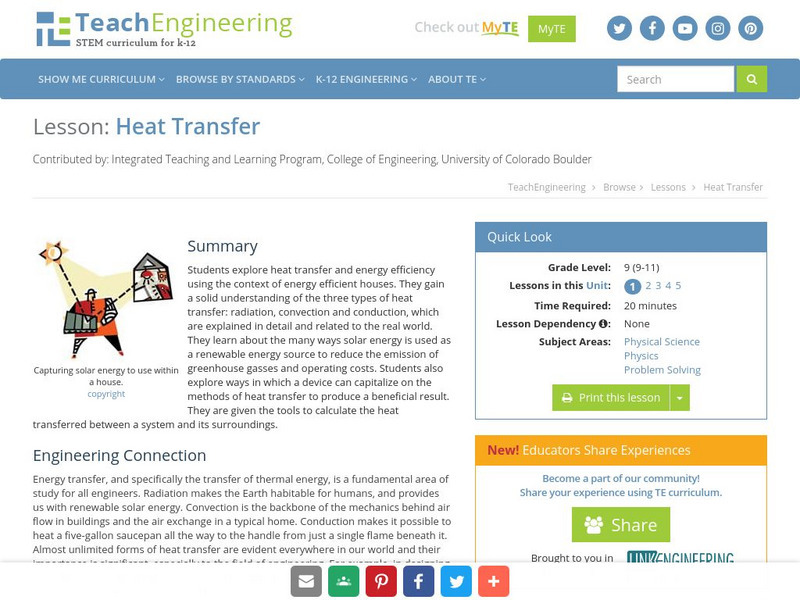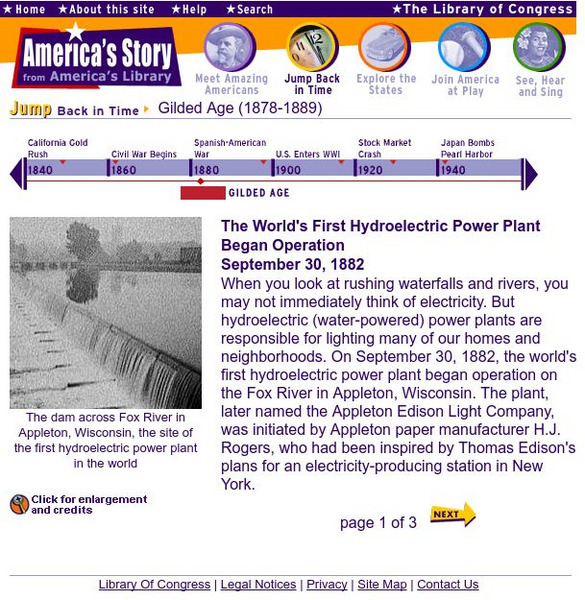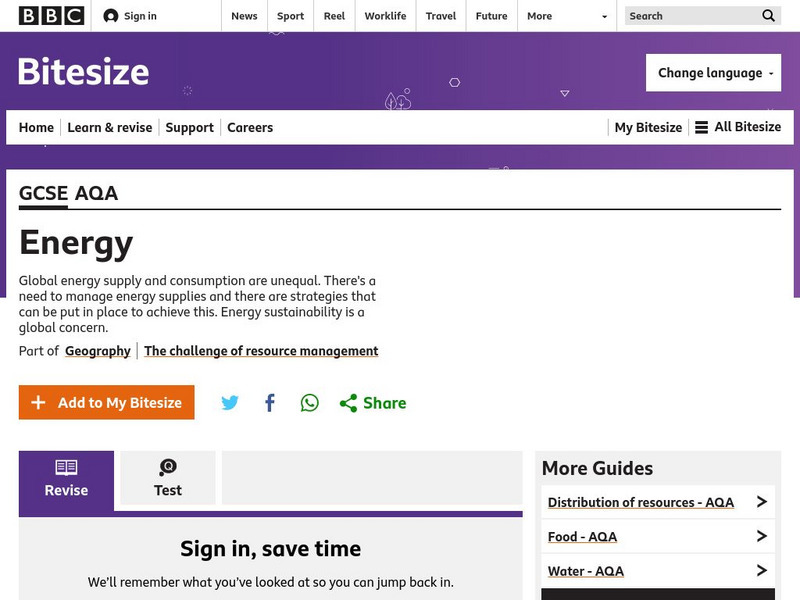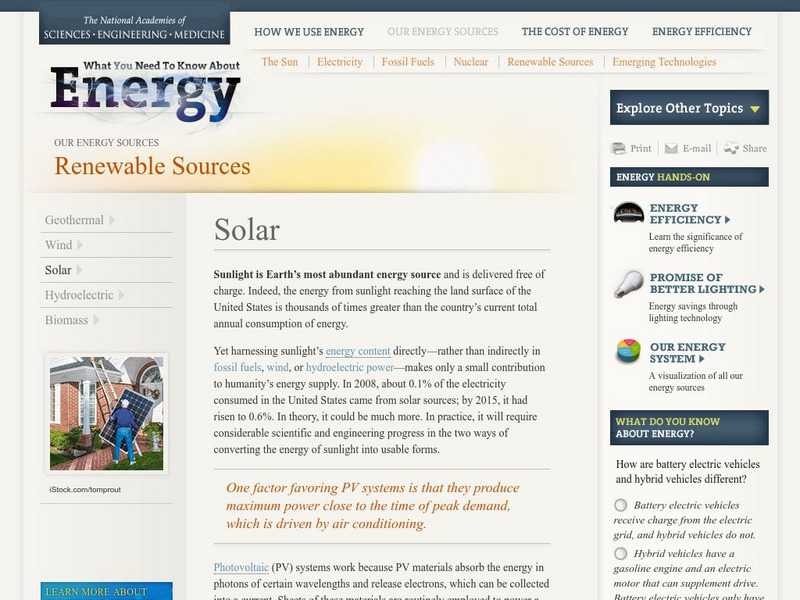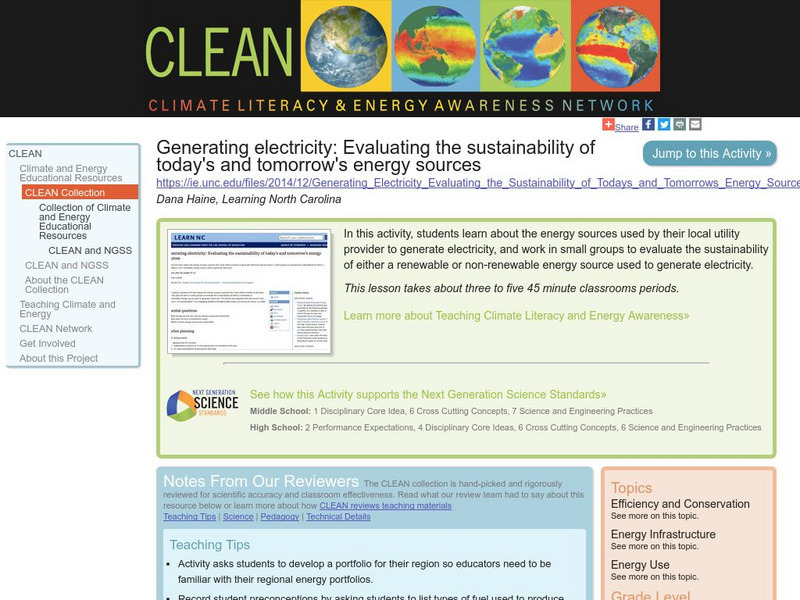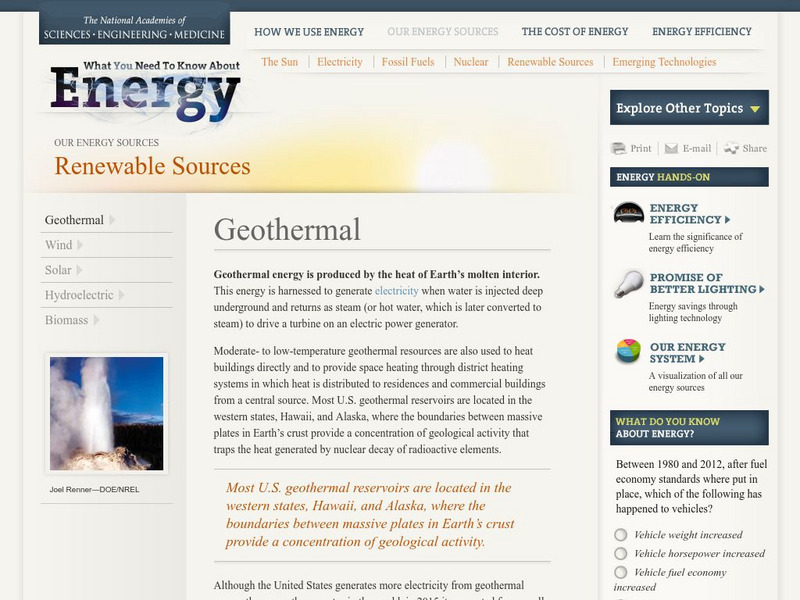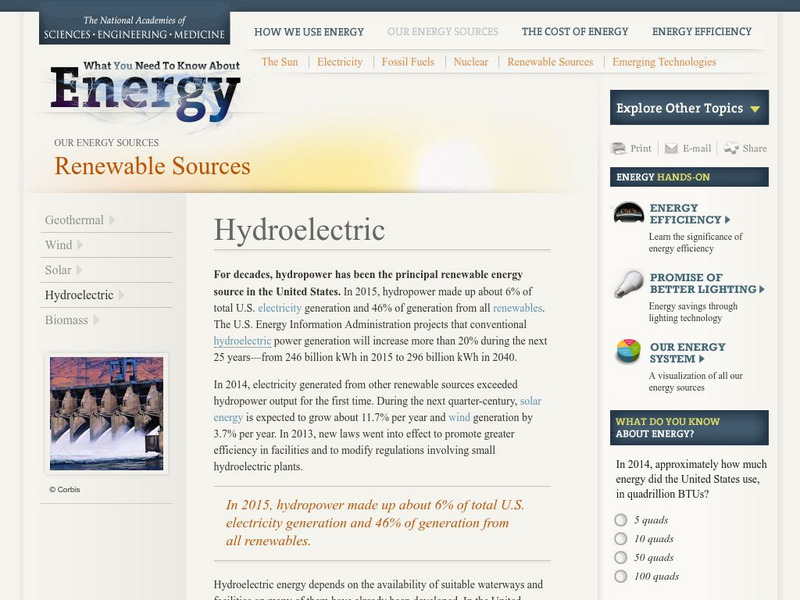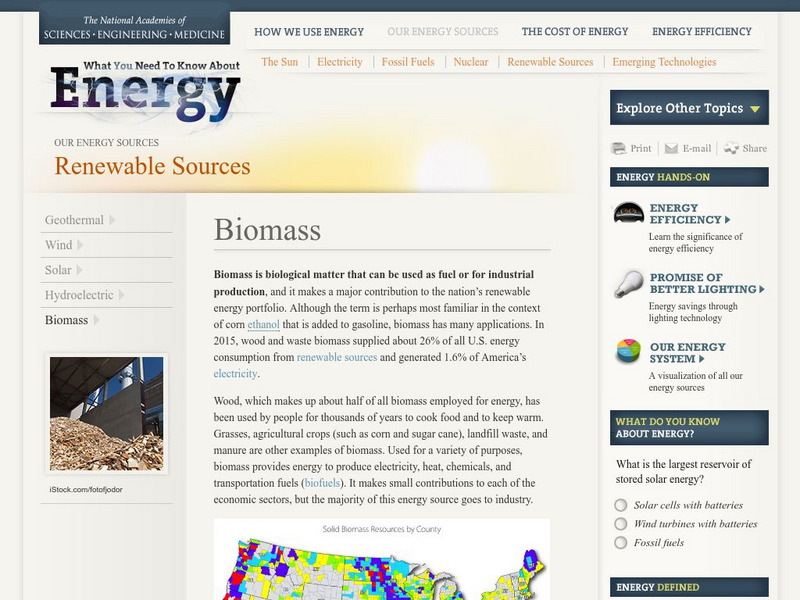Other
The Natural Law Party of the United States of America
The homepage of the Natural Law Party of the United States provides its platform, relevant news, and many informational resources.
National Geographic
National Geographic: Engineering Solutions to Freshwater Problems
Explore how water-based problems in freshwater outlets can be resolved or slowed down with engineering solutions.
Other
Think Green: Think Waste Management
Find out how waste can be recycled and what you can do to aid recycling efforts in your community. With complete overviews of the types of materials that can be recycled: e-waste, paper and cardboard, metals, glass, plastics,...
TeachEngineering
Teach Engineering: The Great Algae Race
In a multi-week experiment, student groups gather data from the photobioreactors that they build to investigate growth conditions that make algae thrive best.
Other
Nrdc: Composting Is Way Easier Than You Think
The NRDC breaks down how to easily achieve at-home composting. Find out what can and cannot be composted.
TeachEngineering
Teach Engineering: Digest Your Food!
In a multi-week experiment, student teams gather biogas data from the mini-anaerobic digesters that they build to break down different types of food waste with microbes. They compare methane gas production from decomposing hot dogs,...
TeachEngineering
Teach Engineering: Biorecycling: Using Nature to Make Resources From Waste
By studying key processes in the carbon cycle, such as photosynthesis, composting, and anaerobic digestion, young scholars learn how nature and engineers biorecycle carbon.
US Environmental Protection Agency
Epa: Composting at Home
Investigate the benefits of composting and discover ways to do it easily at home.
PBS
Pbs Learning Media: Boston Public Schools Capstone Project
The (Boston Public Schools) Capstone Project is an opportunity for students to engage in rigorous project-based learning. It is an opportunity for our students to develop skills to be life, career, and college-ready in a culturally...
Other
Energy Resources
Finding alternative energy sources is a challenge facing the leaders of today and tomorrow. Andy Darvill has created an impressive resource, summarizing various renewable and non-renewable energy resources.
US Energy Information Administration
U.s. Eia Energy Kids: Renewables: Biomass
Comprehensive overview of the use of biomass as a renewable energy source. Learn what it is, its forms, its uses, and its impact on the environment.
Other
Student Energy: Alternative Energy
Provides the definition of alternative energy and how it differs from the definition of renewable energy. Includes a list of links to some excellent resources.
US Energy Information Administration
U.s. Eia Energy Kids: Timelines: Solar Thermal
Timeline of key milestones in the use of solar power as a source of renewable energy.
TeachEngineering
Teach Engineering: Heat Transfer
Students explore heat transfer and energy efficiency using the context of energy efficient houses. They gain a solid understanding of the three types of heat transfer: radiation, convection and conduction, which are explained in detail...
Library of Congress
Loc: America's Story: The World's 1st Hydroelectric Plant
This three-page article explores the operation of the first hydroelectric power plant and the spread of renewable energy in the United States.
Other
Allerin: How Green Robots Are Helping With Environmental Sustainability
Robots are now being used to fight climate change and protect our green environments. They help to fight forest fires, manage our waste, restore the oceans, support renewable energy initiatives, and make agriculture more-environmentally...
Read Works
Read Works: Fuels of the Future
[Free Registration/Login Required] Students read about renewable energy sources that may replace fossil fuel in the future. A question sheet is available to help students build skills in comparing and contrasting.
BBC
Bbc: Energy
Renewable resources quickly replinish themselves and can be used again and again. For this reason they are sometimes called infinite energy resources.
National Academies of Sciences, Engineering, and Medicine
The National Academies: Renewable Sources: Solar
Solar energy is an appealing alternative to conventional sources of energy because it produces no greenhouse gases. An overview of its advantages and disadvantages is presented here.
Climate Literacy
Clean: Generating Electricity: Evaluating the Sustainability Energy Sources
In this activity, students learn about the energy sources used by their local utility provider to generate electricity and work in small groups to evaluate the sustainability of either a renewable or non-renewable resource used to...
National Academies of Sciences, Engineering, and Medicine
The National Academies: Renewable Sources: Geothermal
Geothermal energy is being used today on a small scale but is an appealing alternative to other sources of energy as it has little impact on the environment. This source of energy and how we are harnessing it are described here.
National Academies of Sciences, Engineering, and Medicine
The National Academies: Renewable Sources: Hydroelectric
Hydroelectric power has been a major source of energy production in the United States. More recently, other alternative energy sources have taken some of its market share. Hydroelectricity has both advantages and disadvantages, briefly...
BBC
Bbc: Gcse Bitesize: Energy Demands
Electricity is a very convenient form of energy that can be generated using different energy resources. Some of these resources are renewable and some are non-renewable. Each resource has advantages and disadvantages. A link to a test is...
National Academies of Sciences, Engineering, and Medicine
The National Academies: Renewable Sources: Biomass
The pros and cons of harnessing energy from biomass are outlined. Biomass refers to biological materials that are used to produce energy. Wood and manure are examples of biomass.
Other popular searches
- Renewable Energy Resources
- Renewable Energy Sources
- Renewable Energy Quiz
- Renewable Energy Poster
- Non Renewable Energy Sources
- Renewable Energy Unit
- Non Renewable Energy
- Geothermal Renewable Energy
- Renewable Energy Game
- Renewable Energy Crossword
- Renewable Energy in Florida
- Renewable Energy Science


